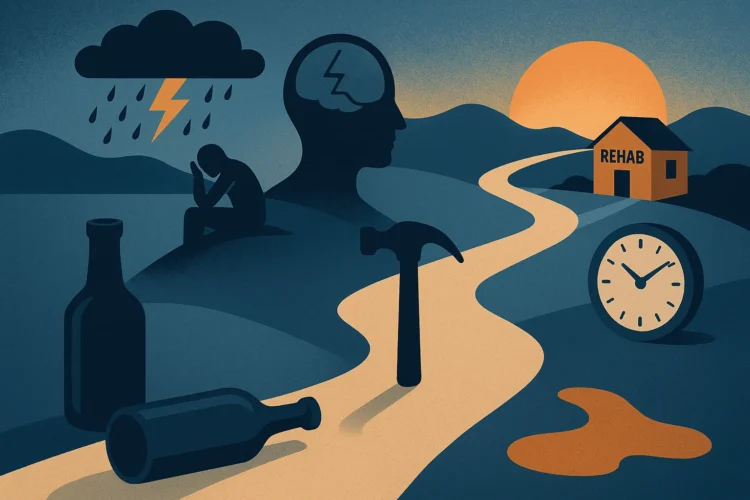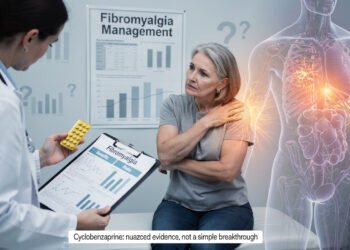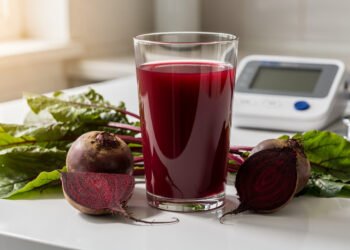Alcohol Withdrawal Symptoms — A Practical Guide for Clinicians and Health Enthusiasts
Key Takeaways
- Alcohol withdrawal symptoms range from mild autonomic signs to life-threatening seizures and delirium tremens.
- Signs of alcohol addiction include loss of control, tolerance, withdrawal, and social/emotional deterioration.
- Alcohol detox at home may suit low-risk individuals, but it carries significant risks without medical supervision.
- Alcohol use disorder treatment spans outpatient therapy, pharmacotherapy, and inpatient care for severe cases.
- The best ways to quit drinking combine safety, medications, targeted therapies, lifestyle changes, and sustained support.
Table of Contents
- Understanding Alcohol Withdrawal Symptoms
- Recognising Signs of Alcohol Addiction
- Exploring Alcohol Detox at Home
- Discussing Alcohol Use Disorder Treatment Options
- Outlining the Best Ways to Quit Drinking
- Conclusion
- FAQ
Understanding Alcohol Withdrawal Symptoms
Alcohol withdrawal symptoms are the constellation of physical and psychological changes that emerge when an individual with physiologic dependence abruptly reduces or stops alcohol intake. Recognising withdrawal informs risk stratification, need for medical supervision, and selection of medications (e.g., benzodiazepines, anticonvulsants).
Spectrum of Symptoms (mild → severe)
- Mild: Sweating, tremor, nausea, headache, insomnia, mild anxiety.
- Moderate: Irritability, confusion, tachycardia, dysregulated temperature.
- Severe: Generalised seizures, hallucinations, severe agitation, delirium tremens (autonomic instability, delirium, high mortality risk).
Clinical Timeline and Course
Onset is typically 6–24 hours after the last drink; peak severity occurs at 24–72 hours. Seizure risk is highest in the first 24–48 hours, while delirium tremens typically appears 48–72 hours after cessation. Protracted symptoms (mood disturbance, sleep issues, cravings) can persist for weeks to months.
Immediate Clinical Actions
- Triage by vital signs and mental status; transfer urgent cases with seizures or severe instability.
- Administer thiamine and correct electrolytes early; assess for mimics (sepsis, metabolic derangements).
- Use validated scales (e.g., CIWA-Ar) to guide dosing and monitoring.
Recognising Signs of Alcohol Addiction
Behavioral Signs
- Drinking more or longer than intended; unsuccessful attempts to cut down.
- Neglecting responsibilities; spending significant time obtaining, using, or recovering from alcohol.
- Continued use despite social, legal, or health consequences.
Physical and Emotional Indicators
- Tolerance and withdrawal symptoms (tremor, autonomic hyperactivity, seizures).
- Changes in hygiene, weight fluctuations, and sleep disturbance.
- Mood changes: irritability, depression, anxiety; social withdrawal and craving preoccupation.
Screening and Assessment
Employ tools like AUDIT-C or full AUDIT, structured interviews, and collateral history to detect minimisation or denial.
Exploring Alcohol Detox at Home
Home detox refers to stopping or tapering alcohol without inpatient supervision. While private and cost-effective, it poses significant risks for high-risk individuals.
Candidate Criteria
- Mild-to-moderate dependence, no history of seizures/DTs.
- No severe medical/psychiatric comorbidities or sedative-hypnotic dependence.
- Stable social support and reliable monitoring.
Safety Protocol
- Pre-detox evaluation: quantify drinks/day, prior withdrawal history, baseline vitals, labs.
- Monitoring: Designate a sober observer, use the CIWA-Ar, and have an emergency transfer plan in place.
- Supportive care: hydration, nutrition, thiamine, sleep hygiene, calm environment.
- Medication strategies: clinician-supervised benzodiazepine tapers; avoid unsupervised sedatives.
When to Insist on Medical Detox
Prior severe withdrawal, heavy chronic use, autonomic instability, concurrent sedative/opioid use, pregnancy, or significant comorbidities warrant inpatient or supervised detox.
Discussing Alcohol Use Disorder Treatment Options
Levels of Care
- Outpatient: Counselling, psychoeducation, medication (naltrexone, acamprosate, disulfiram).
- Intensive Outpatient/Partial Hospitalisation: Frequent contact, structured programming.
- Inpatient Rehab: 24-hour care, medical withdrawal management, psychosocial therapies.
- Medical Detox: Hospital or specialised units with benzodiazepines/phenobarbital, thiamine, and fluids.
Medications
- Withdrawal management: Benzodiazepines, phenobarbital, anticonvulsants.
- Relapse prevention: Naltrexone, acamprosate, disulfiram; consider adjuncts like topiramate.
Psychosocial Therapies
CBT, motivational enhancement therapy, contingency management, and peer support (AA, SMART Recovery) improve outcomes when integrated with medical care.
Outlining the Best Ways to Quit Drinking
Actionable Steps
- Pre-quit planning: set goals, establish a quit date, undergo a medical assessment, and secure necessary supports.
- Environment changes: remove alcohol, avoid high-risk settings, replace routines with activities.
- Behavioural therapies: CBT, motivational interviewing, and relapse prevention training.
- Pharmacotherapy: naltrexone, acamprosate, disulfiram under supervision.
- Holistic supports: exercise, nutrition (thiamine, folate), sleep hygiene, mindfulness practices.
Long-Term Relapse Prevention
Ongoing follow-up, booster therapy sessions, peer support, and contingency plans for lapses are essential for sustained recovery.
Conclusion
Early recognition of alcohol withdrawal symptoms and stratification of risk guide safe detox. Identifying signs of alcohol addiction shapes treatment planning. While alcohol detox at home may suit low-risk patients, medical oversight is preferred for those with severe dependency. A spectrum of care—combining outpatient therapy, pharmacotherapy, and inpatient services—optimises alcohol use disorder treatment. The best ways to quit drinking integrate safety, evidence-based medications, targeted behavioural therapies, lifestyle changes, and sustained social support.
Call to Action: For severe withdrawal symptoms (seizures, hallucinations, severe confusion), contact emergency services. Clinicians should use validated screening and withdrawal assessment tools, correct thiamine/electrolytes early, and refer to supervised detox when indicated. Individuals seeking guidance can consult local treatment centres or national helplines.
FAQ
1. What are the common symptoms of alcohol withdrawal?
Symptoms range from mild (tremor, sweating, insomnia) to severe (seizures, hallucinations, delirium tremens). Timing varies from 6 hours to 72 hours post-cessation.
2. Can I safely detox from alcohol at home?
Home detox may be feasible for low-risk individuals with mild dependence, no history of severe withdrawal, stable support, and clinician supervision. High-risk patients require medical detox.
3. Which medications help manage withdrawal and prevent relapse?
During acute withdrawal, benzodiazepines are first-line for seizures and delirium tremens. For relapse prevention, naltrexone, acamprosate, and disulfiram are evidence-based options.
4. What role do behavioural therapies play in recovery?
CBT, motivational interviewing, and contingency management help patients develop coping skills, address cravings, and reinforce commitment to abstinence or reduction goals.
5. How can I reduce my risk of relapse long-term?
Maintain regular follow-up, engage in peer support groups (AA, SMART Recovery), continue booster therapy sessions, and have a contingency plan for potential lapses.
“`
























